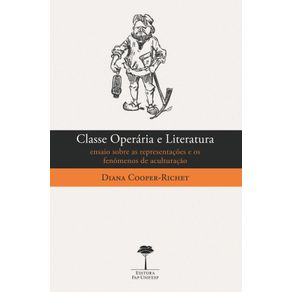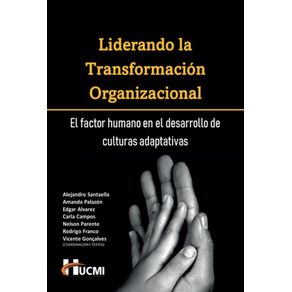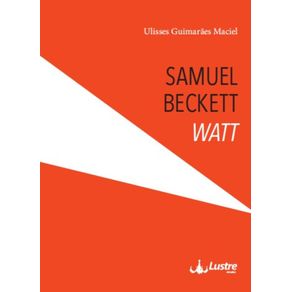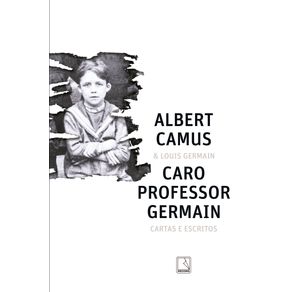| Origem | Literatura Estrangeira |
|---|---|
| Quantidade de Páginas | 150 |
| Acabamento | Capa Dura |
| Autores | William F. Zak |
| Idioma | Inglês |
| Edição | 0 |
| Selo | Rowman & Littlefield Publishing Group Inc |
 Ifigênia em Áulis, As Fenícias, As Bacantes
Ifigênia em Áulis, As Fenícias, As Bacantes
Companhia das Letras
R$ 74,90 à vista Os caracteres poéticos de Giambattista Vico
Os caracteres poéticos de Giambattista Vico
Editora Unifesp
R$ 54,90 à vista Classe operária e literatura
Classe operária e literatura
Editora Unifesp
R$ 34,00 à vista Tudo o que deixaram
Tudo o que deixaram
Simplíssimo
R$ 60,00 à vista A Maldição Da Botija
A Maldição Da Botija
Simplíssimo
R$ 31,50 à vista Poesias de minha mãe: Resgatando sentimentos
Poesias de minha mãe: Resgatando sentimentos
Simplíssimo
R$ 122,90 ou até 2x sem juros Amar se aprende amando
Amar se aprende amando
RECORD
R$ 69,90 à vista Declaração de amor
Declaração de amor
RECORD
R$ 89,90 à vista O sequestro do sonho
O sequestro do sonho
Calêndula
R$ 76,00 à vista Literatura premiada para crianças e jovens: da composição à sensibilização
Literatura premiada para crianças e jovens: da composição à sensibilização
Paco Editorial
R$ 88,90 à vista O absurdo da existência nos contos de Murilo Rubião
O absurdo da existência nos contos de Murilo Rubião
Paco Editorial
R$ 60,90 à vista Heroísmo na singradura dos mares: histórias de naufrágios e epopeias nas conquistas ultramarinas portuguesas
Heroísmo na singradura dos mares: histórias de naufrágios e epopeias nas conquistas ultramarinas portuguesas
Paco Editorial
R$ 80,90 à vista Artes, mídias e outras literaturas
Artes, mídias e outras literaturas
Paco Editorial
R$ 133,90 ou até 2x sem juros The Panda Bear and the Ant
The Panda Bear and the Ant
TROINHA
R$ 78,00 à vista SAMUEL BECKETT WATT
SAMUEL BECKETT WATT
Editora Penalux
R$ 44,00 à vista Os caracteres poéticos de Giambattista Vico
Os caracteres poéticos de Giambattista Vico
Editora Unifesp
R$ 54,90 à vista Classe operária e literatura
Classe operária e literatura
Editora Unifesp
R$ 34,00 à vista Cravos de abril: E o sopro poético na literatura portuguesa
Cravos de abril: E o sopro poético na literatura portuguesa
Iventura
R$ 35,00 à vista Amar se aprende amando
Amar se aprende amando
RECORD
R$ 69,90 à vista Caro professor Germain
Caro professor Germain
RECORD
R$ 59,90 à vista O sequestro do sonho
O sequestro do sonho
Calêndula
R$ 76,00 à vista Artes, mídias e outras literaturas
Artes, mídias e outras literaturas
Paco Editorial
R$ 133,90 ou até 2x sem juros Poéticas do tempo, da memória e da história: Ignácio de Loyola Brandão, escritas e cidades
Poéticas do tempo, da memória e da história: Ignácio de Loyola Brandão, escritas e cidades
Paco Editorial
R$ 91,90 à vista A expressão da religiosidade nos poemas de Adélia Prado: Um estudo literário e teológico
A expressão da religiosidade nos poemas de Adélia Prado: Um estudo literário e teológico
Paco Editorial
R$ 34,90 à vista Poetas em tempos de resistência
Poetas em tempos de resistência
Paco Editorial
R$ 42,90 à vista A Sapateira Prodigiosa
A Sapateira Prodigiosa
Tacet Books
R$ 49,90 à vista Infindável espiral de signos
Infindável espiral de signos
Calêndula
R$ 60,00 à vista O ratinho espertalhão
O ratinho espertalhão
Baobá
R$ 30,00 à vista Ensaios seletos
Ensaios seletos
Editora 34
R$ 92,00 à vista SAMUEL BECKETT WATT
SAMUEL BECKETT WATT
Editora Penalux
R$ 44,00 à vista BraZineiras: o protagonismo feminino nos fanzines
BraZineiras: o protagonismo feminino nos fanzines
Timo
R$ 59,00 à vista Medéia, Hipólito, As Troianas
Medéia, Hipólito, As Troianas
Companhia das Letras
R$ 74,90 à vista Entre Correntes: A Resistência Saga
Entre Correntes: A Resistência Saga
Simplíssimo
R$ 65,90 à vista Box Um de Nós (2005)
Box Um de Nós (2005)
Galera
R$ 99,90 à vista Heroísmo na singradura dos mares: histórias de naufrágios e epopeias nas conquistas ultramarinas portuguesas
Heroísmo na singradura dos mares: histórias de naufrágios e epopeias nas conquistas ultramarinas portuguesas
Paco Editorial
R$ 80,90 à vista Conversasliterárias: notas de estudos literários e temas afins em tempos de pandemia
Conversasliterárias: notas de estudos literários e temas afins em tempos de pandemia
Paco Editorial
R$ 78,90 à vista Teoria da literatura: reflexões e novas proposições
Teoria da literatura: reflexões e novas proposições
Paco Editorial
R$ 42,90 à vista Poéticas do tempo, da memória e da história: Ignácio de Loyola Brandão, escritas e cidades
Poéticas do tempo, da memória e da história: Ignácio de Loyola Brandão, escritas e cidades
Paco Editorial
R$ 91,90 à vista A expressão da religiosidade nos poemas de Adélia Prado: Um estudo literário e teológico
A expressão da religiosidade nos poemas de Adélia Prado: Um estudo literário e teológico
Paco Editorial
R$ 34,90 à vista a menina animada
a menina animada
TROINHA
R$ 78,00 à vista O URSO E A FORMIGA
O URSO E A FORMIGA
TROINHA
R$ 78,00 à vista MEU BARQUINHO DE PAPEL
MEU BARQUINHO DE PAPEL
TROINHA
R$ 78,00 à vista O COLECIONADOR DE SONHOS
O COLECIONADOR DE SONHOS
TROINHA
R$ 78,00 à vista A menina e o arco iris
A menina e o arco iris
TROINHA
R$ 78,00 à vista Contando com aquarela
Contando com aquarela
Asas Editora
R$ 74,00 à vista